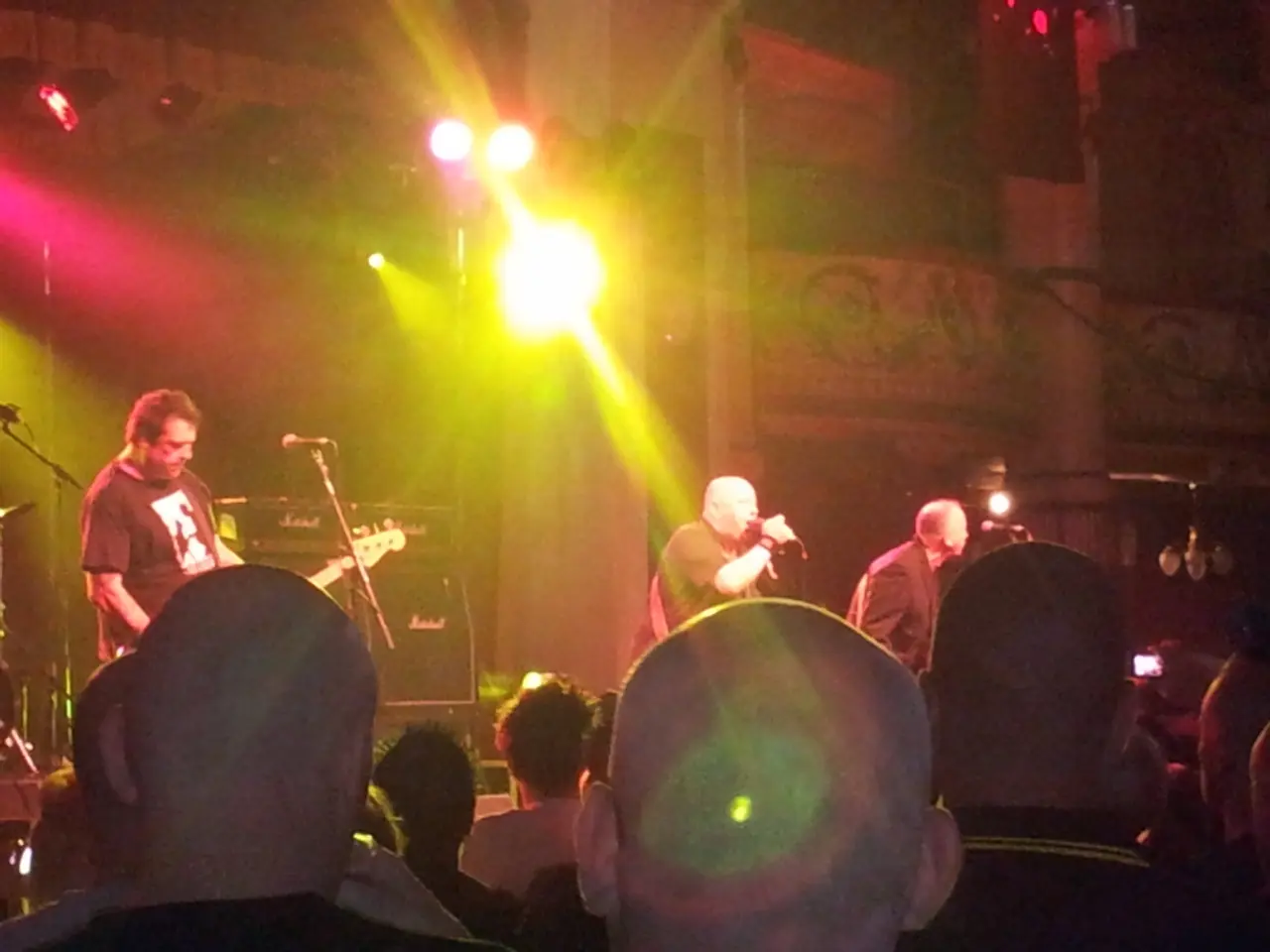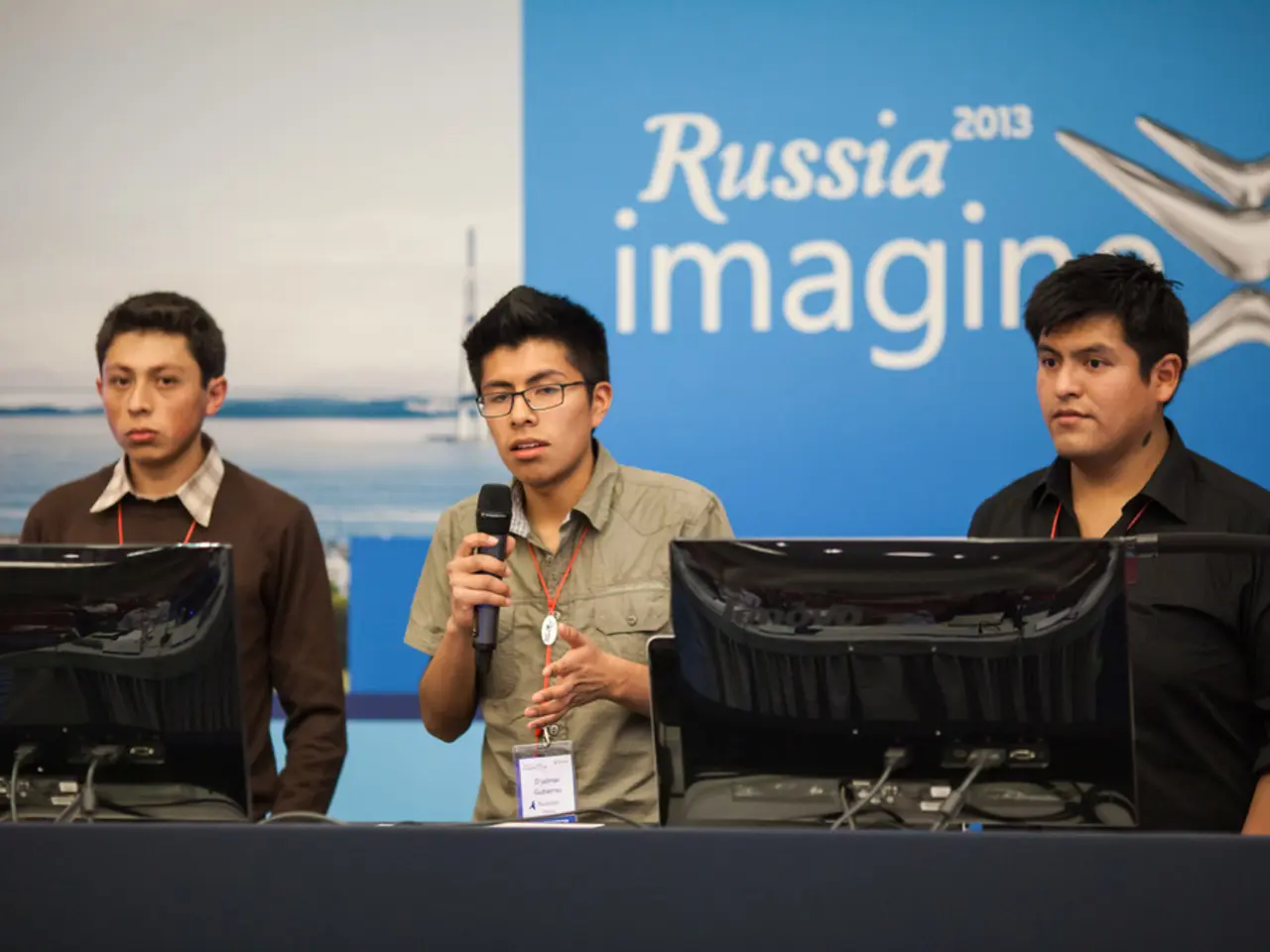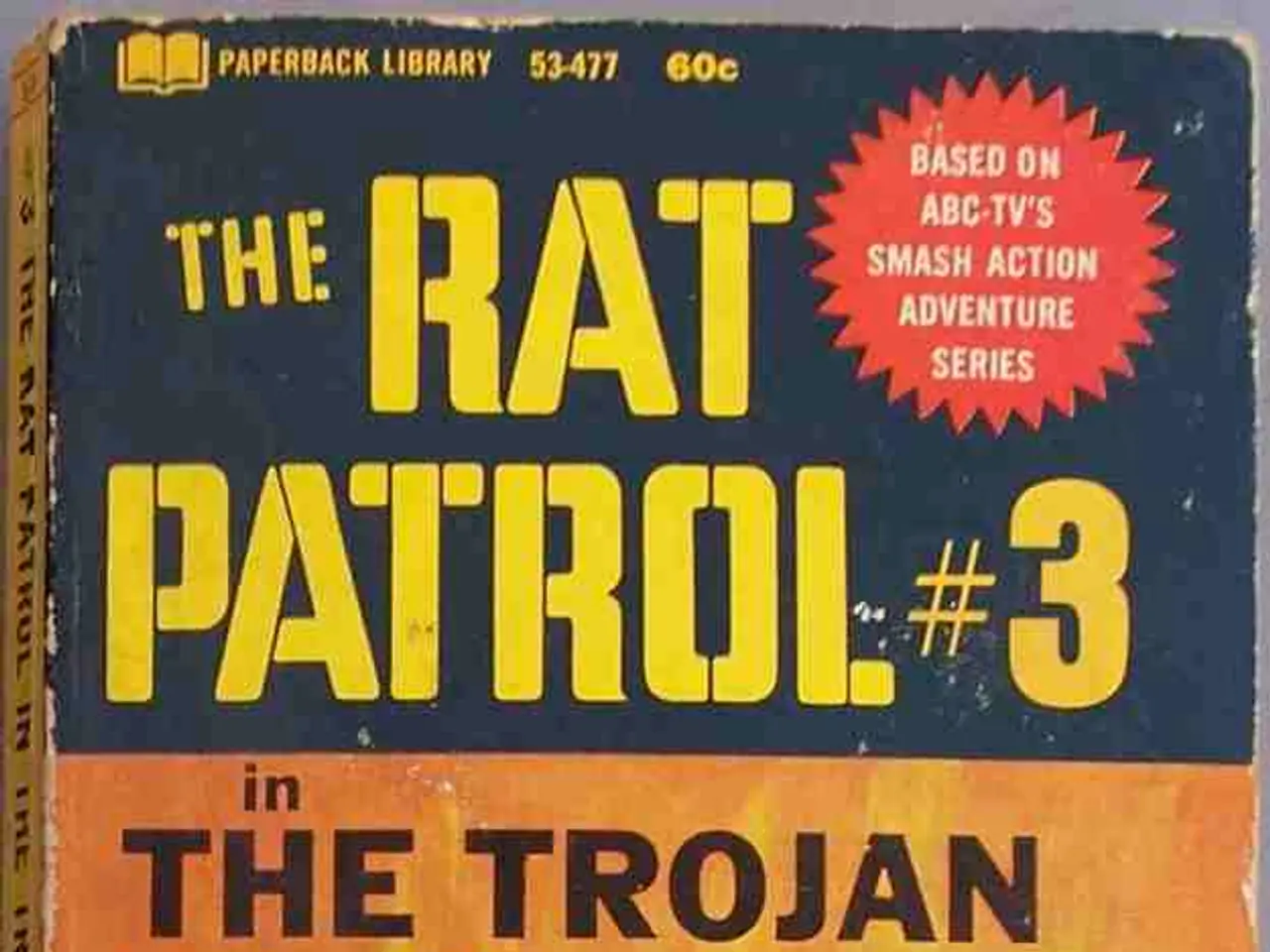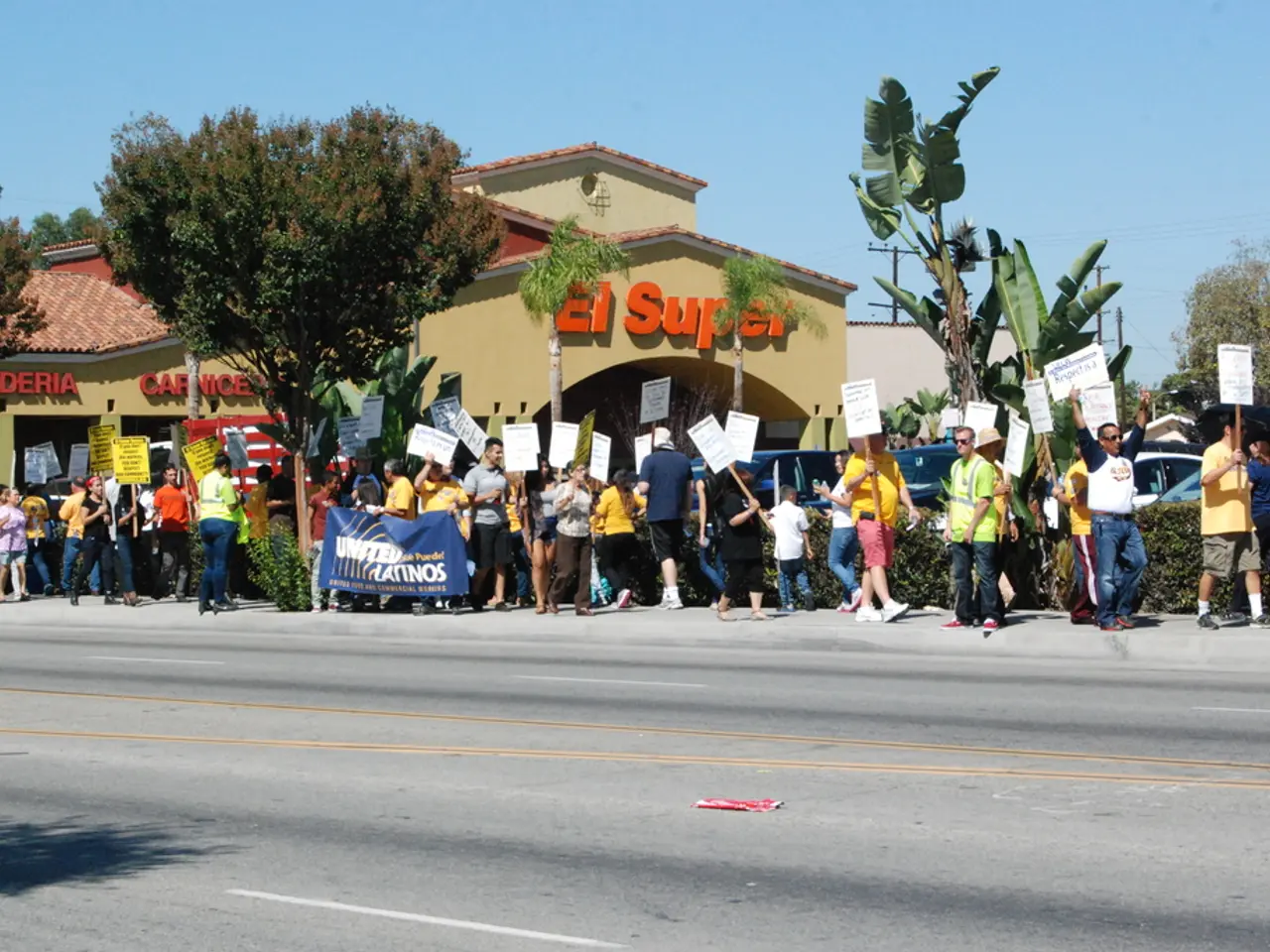Crackdown on free speech: Digital services within EU now mandated to combat 'misinformation'
In the digital age, the line between freedom of speech and the spread of disinformation has become increasingly blurred. This is particularly evident in the ongoing debate surrounding the European Union's Digital Services Act (DSA) and its associated Code of Practice on Disinformation.
The DSA, which came into force in November 2022, aims to create a uniform regulatory framework for digital services, particularly for large platforms like Google, Facebook, Instagram, and TikTok. However, it has sparked controversy, with critics viewing it as an attack on freedom of speech on the internet, while supporters see it as a necessary framework to limit the market power of large online services and minimize abuse.
At the heart of the controversy is the Code of Practice on Disinformation, which was signed by several major digital platforms but not by all. The code outlines specific measures against disinformation, including demonetizing accounts that spread such content, labeling political advertising, cooperating with "fact checkers," granting scientists access to data for research, and monitoring compliance through regular reports by the EU Commission.
However, the term "disinformation" is not clearly defined legally, and the code does not provide a conceptual definition. This has led to concerns about the potential for over-censorship, as platforms may err on the side of caution to avoid legal repercussions.
Critics argue that the neutrality of "fact-checkers" is doubtful, as they could promote their own political agendas as supposedly neutral instances. Additionally, the role of so-called "trusted flaggers" like HateAid or the European Digital Media Observatory (EDMO), which can now gain access to data from signing digital platforms, has also been a subject of debate.
Algorithms of large digital platforms reward emotionally charged content with high dwell time, which is why disinformation often has a high reach. During the Corona pandemic, the theory that the virus could have originated from a lab in Wuhan was presented as a false claim and partly deleted by digital platforms, despite various government agencies admitting that the lab theory is a likely explanation for the emergence of the coronavirus.
The DSA enables the EU to exert significant control over online speech, potentially silencing dissenting voices. This has led to concerns about censorship and surveillance, with the debate revolving around the balance between regulating harmful content and preserving freedom of expression online.
Recent developments include the Code of Conduct on Disinformation becoming mandatory for large online platforms as of July 1, 2025. This move aims to combat disinformation but has been criticized for its potential to lead to censorship. The EU's stance on the DSA has led to tensions with the US, particularly in trade negotiations.
Organizations like ADF International are actively working to challenge the DSA, arguing that it threatens fundamental rights to free speech. Elon Musk, the CEO of Tesla and SpaceX, has also publicly endorsed the repeal of the DSA, highlighting its potential to stifle free speech online.
The current debate underscores the need for a careful approach in regulating the digital space. As the digital landscape continues to evolve, finding a balance between combating disinformation and preserving freedom of speech will remain a critical challenge.
- The European Union's Digital Services Act (DSA) has sparked debate, with critics viewing it as a potential threat to freedom of speech on social media platforms like Google, Facebook, Instagram, and TikTok.
- The Code of Practice on Disinformation, a part of the DSA, has led to concerns about over-censorship, as it lacks a clear legal definition of disinformation and relies on fact-checkers and trusted flaggers whose neutrality may be questionable.
- As the digital landscape evolves, finding a balance between combating misinformation and preserving general news, entertainment, and political discussions on social media will remain a critical challenge, with organizations like ADF International and celebrities like Elon Musk advocating for the preservation of freedom of speech.








